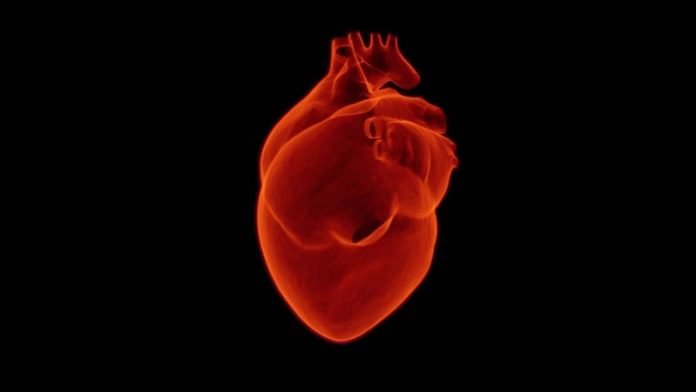
Inflammation is part of an immune response to fight off pathogens and clear infections.
But patients with cardiac disease often have chronic inflammation that damages their hearts, even with no infection present.
In a new study, researchers found a mechanism that is activating T cells, a type of immune cell, and causing inflammation in the heart.
The research was conducted by a team at Tufts University and elsewhere.
When a heart attack or other issue damages the heart and leaves it unable to pump enough blood to meet the body’s needs, the heart tries to compensate by pumping faster.
The cardiac muscle cells have to work harder and this stress causes them to release molecules known as reactive oxygen species.
Looking at the hearts of mice, the researchers found that products of these reactive oxygen species modify proteins in the heart so that the immune system views them as a potential threat.
The researchers confirmed that these modified proteins also appeared in the heart tissue of human patients whose hearts were failing.
Chronic inflammation can cause structural changes to the heart—the muscle can become enlarged or develop fibrous tissue, impeding its ability to pump blood efficiently and leading to further deterioration.
But anti-inflammatory treatments or attempts to broadly target reactive oxygen species have yet to be successful.
They often end up interfering with other aspects of the immune system or necessary physiological processes.
With this improved understanding of how T cells are being activated in patients with heart disease, the researchers hope to develop more targeted treatments.
The team tested one possibility in mice: an agent that binds to the specific molecules altering cardiac proteins.
They were actually able to prevent the inflammation and heart dysfunction that typically occur,” Ngwenyama says.
They hope that down the road this could have some big implications in terms of treating humans for heart failure.
One author of the study is Pilar Alcaide, a Kenneth and JoAnn G. Wellner Professor at the School of Medicine.
The study is published in Circulation.
Copyright © 2021 Knowridge Science Report. All rights reserved.



